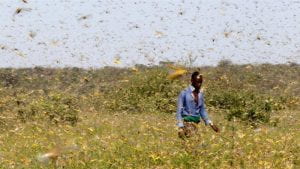This quarter I had the pleasure of collaborating with five other students while working for the nonprofit organization Slow Food Washington. Slow Food Washington is this state’s chapter of the international organization Slow Food, a group dedicated to creating “Good, Clean, and Fair Food for All.” We were given a lot of autonomy on how we wanted to focus our project and ended up centering it around supporting the passage of Washington House Bill 2777/Senate Bill 6463. If passed, this legislation would allow permits for “Micro Enterprise Home Kitchens” where cooks can legally sell food out of their homes. We created a revisable digital media toolkit on how to best engage the Slow Food community in support of the bill.
My overall takeaway from this course is the importance of thinking systemically. We started the quarter off critiquing the individualistic solutions offered in Michael Pollen’s piece and learning about the pitfalls of reductionism. Systemic thinking is critical to unpacking historical legacies and understanding complex connections. Starting off with this literature set the tone for what followed. We were challenged to not just reform but reimagine what these systems could look like. A notable example is Monica White’s Freedom Farmers piece. This intersects food sovereignty with America’s racial history while advocating for community-led organizations that can bolster economic autonomy. These propositions are centered around creating new systems that transcend old, inherently inequitable ones. HB2777/SB6463 incorporates similar thinking. Rather than tackle the large and complex roadblocks to starting a food business (like income inequality, racial inequities, and gentrification), this bill focuses on creating economic opportunities for lower-income individuals through a new alternative. Legalizing home cooking in Washington will provide an abundance of opportunities for diverse ethnic or cultural dining throughout our state; I’m so thrilled I had the chance to contribute in a small way.
Systemic thinking is of course relevant to our current dialogue around policing — defunding the police (and reallocating funds to appropriate community organizations) creates new systems rather than perpetuating an institution built on racism. Falling back on old ways of thinking is easy but damaging. Challenging ourselves to build a society that offers direct solutions to social ills rather than punishing people for our systems’ shortcomings is difficult but imperative. I’m optimistic that we are at a turning point. I take with me the systemic thinking necessary to dismantling injustice.
A copy of our digital toolkit: SECONDDRAFTSLOWFOODDIGITALTOOLKIT





/cdn.vox-cdn.com/uploads/chorus_image/image/59692373/GettyImages_968561996.6.jpg)


